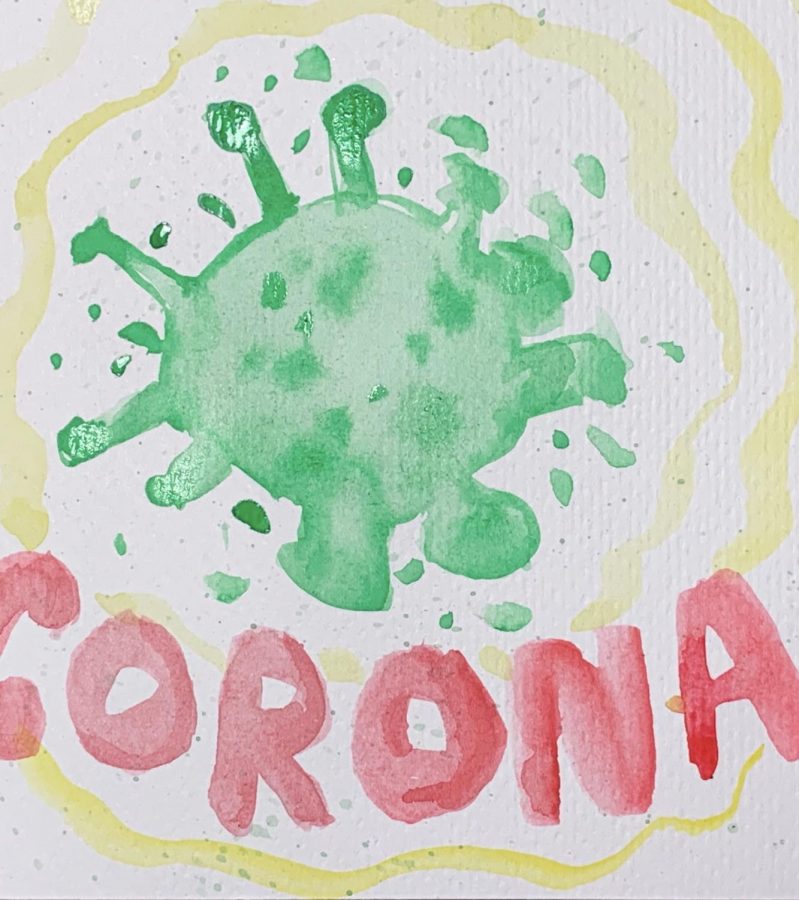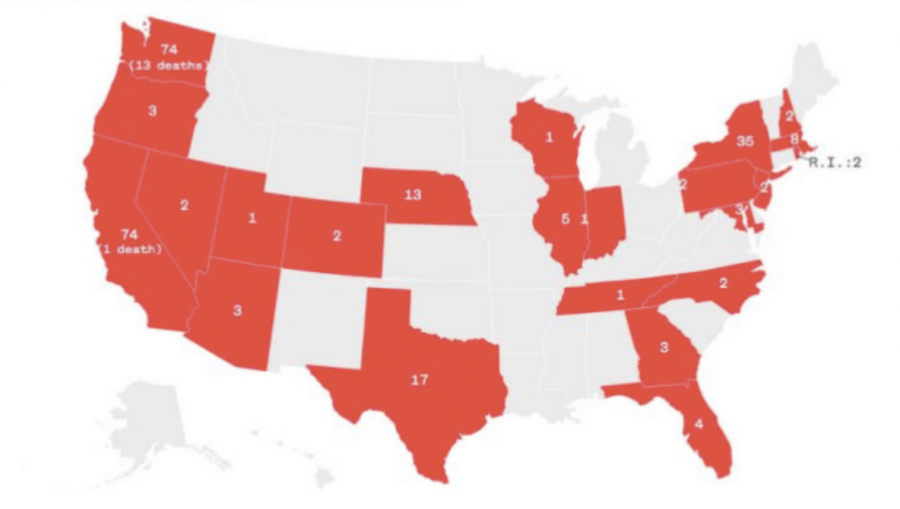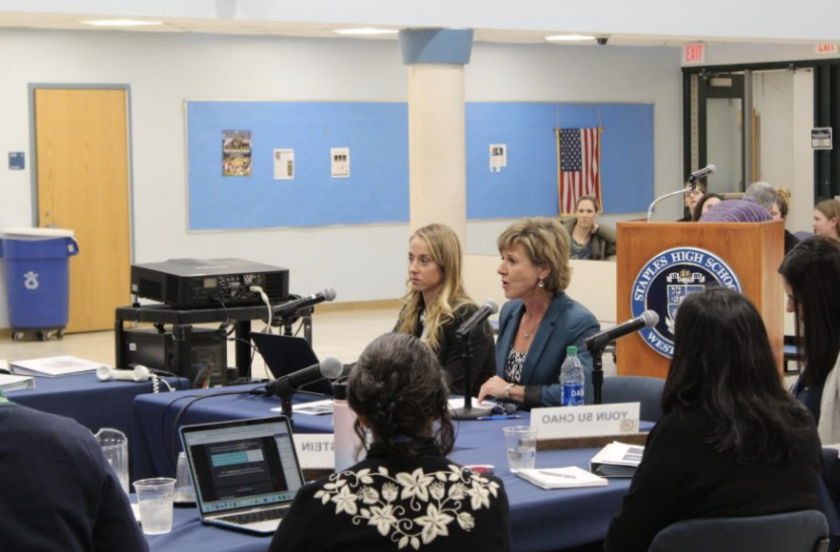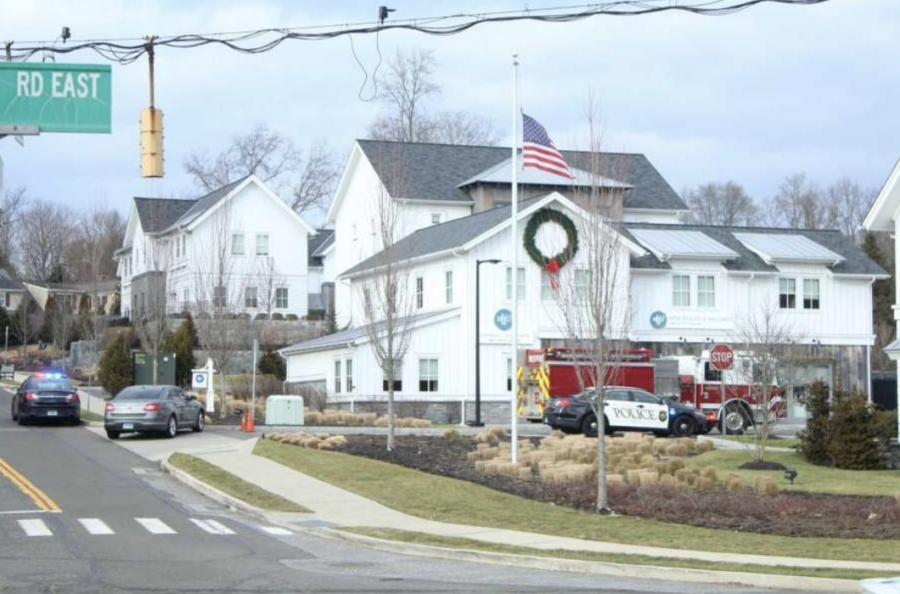WARNING: This article contains explicit language and chronicles verbal exchanges that may be considered offensive. Inklings noted this in its decision to run the article to print, with the consideration that the language was necessary to more completely detail a serious issue. Reader discretion is advised.
“F**k McMahon.”
“F**k Westport, and you golfing ass homos.”
“Get back to pumping our gas.”
“Go back to playing mini golf in Jew land.”
So began one of many exchanges on the wall of the “Brien McMahon vs. Staples” Facebook event. Racial and ethnic slurs were thrown around carelessly. Homophobia was widespread, as was anti-semitism and sexually explicit remarks. “____ is gay enough to want a man to **** his ****,” said one commenter. Sexism was added to the mix, as when, for instance, a teenage girl began commenting. “Stay in the kitchen,” one student responded. “____ looks like she sucks a good ****,” added another.
The problem is widespread. Almost every time that a Staples sports team, usually football or boys’ soccer, participates in an athletic event, a Facebook event page is created. Sometimes this is done for what are defended as genuine reasons, such as discussing the attire of the game (“Whiteout this Thursday”) or finding out how many people will be in attendance. However, the good intentions often vanish in mere minutes.
The event pages are public and open to anyone with an Internet connection and the ability to search “Brien McMahon vs. Staples” on Facebook. Maybe the people posting and commenting do not understand that the pages are public. Maybe they do. Whatever the case may be, some would argue that it is time to expose what truly lies beneath what they would depict as the sparkling veneer of fandom at Staples.
“Be a Fan, Not a Fanatic.”
Staples High School: home of the Wreckers, yes, but also home of the SuperFans, an organization which, by name alone, would be expected to be comprised of respectful and fun-loving individuals. SuperFans co-president Andrew Felman ’14 believes that this is the case.
“All we are looking to do is get good fan support for the Staples community,” Felman said.
It may come as a surprise to some, however, to learn that many Staples students are not, in fact, quite so “super” when it comes to athletic sportsmanship, or so some in the community would argue.
Trashtalk itself is not a new problem. Varsity boys’ soccer coach Dan Woog believes that it is a function of society, and that what happens at college and university sports games around the country has always managed to trickle down to the high school level. Woog has personally seen all types of trashtalk during his time at Staples.
“Whether it’s yelling ‘You suck’ at football teams as they walk past at halftime, or whether it’s, as we’ve seen, engaging in class warfare on Facebook,” Woog said. “From time to time, the fans do cross the line, as they do in college stadiums across the country.”
However, online trashtalk is a relatively recent phenomenon, experts say. With the advent of Facebook, it is easier than ever to trashtalk. Why start heckling the other team on the day of the game when one can heckle the other team weeks before the game even occurs? Why merely “heckle” (a word with particularly safe and playful connotations) the other team at the game with teachers and principals both listening and watching, when one can verbally attack the other team on Facebook?
The Fairfield County Interscholastic Athletic Conference (FCIAC) is made up of 19 schools. According to FCIAC’s website, around 62,000 fans attend conference games annually. Some of these fans are parents, while some are students. A small percentage of the latter finds its way onto Facebook events to write things like, “Go spend your parents’ money,” and “Wtf are u trying to say, retard?”
While a relatively modest selection of Staples students choose to post on the event pages, many other students say they are divided on the issue, torn between laughing at the absurdity of some of the more playful posts and cringing at the cruelness of the less endearing ones.
“I think it’s hilarious to read, but some kids can take it too far,” James Hines ’13 said.
Katie Platt ’13 believes that while the original intentions may be to make others laugh, many students are far too hurtful in the process.
“I think people try too hard to be funny and to put the other team down that they end up looking bad in the end,” Katie Platt ’13 said.
There are, of course, outliers who attempt to control the chaos that erupts on these pages. “This is ridiculous. Stop trashing each other. There’s no need for it. You just make yourself look ignorant and dumb by [making] false assumptions and stereotypes about people,” said one commenter. “Can whoever created this page just delete it? This is ridiculous and goes way beyond showing school spirit,” pleaded another. Not many people listened. The next post? “Norwalk girls take it in the ***.”
The Violence Escalates
At the Oct. 1 football game between Brien McMahon and Staples, students said, the situation took a turn for the worse. What had previously been an Internet-only situation, thus somewhat intangible, became all too real when Colleen McCarthy ’12 was punched in the face by a McMahon student.
“I was at the football game and a few McMahon girls came over. I was standing in the front row, and they were pushing their way through, but everyone was kind of pushing them back out,” McCarthy said. “One of my friends said something, trash-talking, and they turned around and thought it was me. One of the girls looked at me and then punched me in the face.”
McCarthy, an innocent bystander, had done nothing on Facebook to rile up the girls.
“We were just cheering at the football game. I wasn’t involved in anything before the game,” McCarthy explained.
In shock, McCarthy turned to a friend to verify that she had just been punched in the face by a student from McMahon. Having no intentions of fighting at a high school football game, McCarthy literally, and maybe figuratively, turned the other cheek and continued to watch the game.
McCarthy did not suffer any injuries as a result of the attack. However, she does feel that what happened to her should not have occurred.
“I think the trash-talking gets out of hand. I never thought I would actually get punched, especially because I didn’t trashtalk before the game,” McCarthy said. “But it ended up getting violent. Usually it doesn’t escalate to anything like that.”
It is no shock, some said, that the event occurred. With posts ranging from “Norwalk soccer is as bad as your graduation rate” to “I love them Norwalk girls… nice and beefy with a side of STDs,” students said they knew someone was bound to get hurt at some point.
Friendly Rivalry vs. Violent Trashtalk
Athletic director Marty Lisevick believes that because the line between friendly rivalry and violent trashtalk is so thin, kids often break it without fully realizing the implications of their actions. For the Oct. 6 soccer game between Trumbull and Staples, a Facebook event page was created by two soccer players. Things began in a relatively calm fashion before exploding into an insult-fueled engine of racist, homophobic, and generally pejorative comments.
“What should have been a pretty benign soccer game ballooned up into this, just because of a Facebook page,” Lisevick said. “That’s not what sports are about. We try to remind our fans that they’re there to support our kids and cheer for our kids.”
On the morning of the Trumbull soccer game, Principal Dodig and Vice Principal Farnen received an email from a student at Trumbull High School. The student, involved with the student government at his school, described the Facebook event page and said that what was being written in it was highly offensive on both school’s parts. The student went on to say that he would be sharing the page with his school principal as well, but he wanted the Staples administration to be aware of what was going on.
Farnen, who often deals with online and computer-based issues at Staples, looked into the page and was shocked by what he saw.
“I took a brief look at it. I didn’t spend much time on it. It took literally thirty seconds for me to say, ‘There’s nothing good going on here,’” Farnen said. While he had no issues with the fact that two soccer players had created the page to advertise and garner support for their game, he was not a fan of the vitriol that followed.
“The problem with the page is that after they announced the event, it became really nasty,” Farnen explained. “We had former graduates chiming in, they had comments about people’s mothers. There were racial undertones in some of the comments. It was clearly inappropriate stuff.”
Farnen forwarded the email to Athletic Director Lisevick and Coach Woog. The soccer players who created the event were spoken to and the page was taken down. However, the situation was far from over.
“The issue now is that because this ballooned up, we’ve got to go get some police officers for the game, make sure we pull out all the vice principals, and make sure the event is supervised appropriately,” Lisevick said.
Many wonder whether or not the administration had the right to ask the players to take the page down. According to Vice Principal Farnen, the school is allowed to get involved with off-campus misconduct, including the use of computers to bully or to harass others, especially if the conduct is deemed “disruptive of the educational process.” That being said, the school did not force the players to take it down.
“Could we technically make the page owners take the event down? I don’t believe so. Because there wasn’t a formal allegation of bullying from a student to student,” Farnen said.
Lisevick is still uncertain as to what schools should be doing to monitor this type of online behavior. He cites that at a high school athletic convention earlier this year, the topic of online trashtalk was popular and highly controversial.
“Does one monitor this stuff, or do kids just say whatever they want to say? Because it can get pretty nasty, and that’s when you get an issue at a game,” said Lisevick.
Still, Lisevick feels that both online and game-time trashtalk should not be occurring, especially with high schoolers.
“That may be the norm at NFL games, UCONN games, major league baseball games, or major league soccer games,” said Lisevick. “That is not the norm for high school sports.”



















































